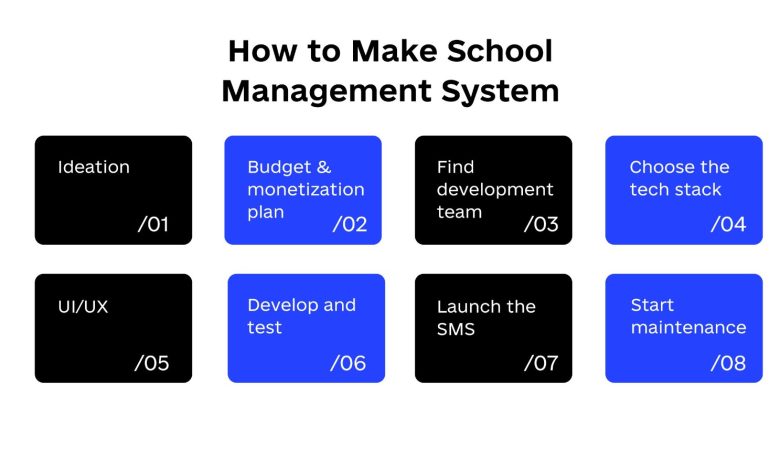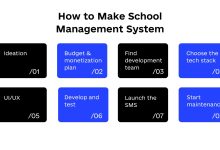Implementing a School Management System: Best Practices for Educational Institutions

In today’s rapidly evolving educational landscape, staying organized and efficient is paramount for schools and educational institutions. This is where a School Management System (SMS) comes into play. SMS is a comprehensive software for school management that streamlines administrative tasks, enhances communication, and improves overall efficiency. However, implementing an SMS is not a one-size-fits-all endeavor. To make the most of this technology, educational institutions need to follow best practices. In this article, we will explore the key steps and considerations for successfully implementing a school management system.
**1. Assess Your Needs and Goals
Before diving into the world of school management system, it’s essential to assess your institution’s unique needs and goals. What specific challenges are you looking to address? Do you want to streamline admissions, improve communication with parents, or enhance student performance tracking? Identifying your objectives will guide you in selecting the right SMS features and functionalities.
**2. Select the Right SMS Vendor
Choosing the right SMS vendor is a critical decision. Look for vendors with a proven track record in the education sector. Consider factors such as user-friendliness, scalability, and customer support. It’s also essential to ensure that the SMS aligns with your institution’s size and requirements.
**3. Customize and Configure
Once you’ve selected an SMS, work closely with the vendor to customize and configure the system according to your institution’s needs. This may involve setting up user accounts, defining roles and permissions, and tailoring the system to match your existing processes.
**4. Provide Training
Introducing a new school management system to your staff can be met with resistance if they are not familiar with the technology. To ensure a smooth transition, invest in training sessions for teachers, administrative staff, and other users. Familiarity with the system will help maximize its potential.
**5. Data Migration
If you are transitioning from manual record-keeping or switching from an old system to a new one, data migration is crucial. Ensure that all your existing data, including student records, financial information, and schedules, are accurately transferred to the new SMS. Data integrity is paramount.
**6. Communicate with Stakeholders
Transparency and effective communication are key throughout the implementation process. Inform parents, students, and staff about the upcoming changes, the benefits of the SMS, and how it will improve their experience. Address any concerns and provide resources for assistance.
**7. Pilot Testing
Before fully deploying the SMS, conduct pilot testing with a small group of users. This allows you to identify any potential issues, fine-tune the system, and ensure that it aligns with your institution’s needs. Gather feedback from pilot users to make necessary adjustments.
**8. Phased Rollout
Rather than implementing the SMS all at once, consider a phased rollout. Start with a specific department or set of functionalities and gradually expand to other areas. This approach allows for better management of any issues that may arise during implementation.
**9. Regular Evaluation and Improvement
Once the SMS is in use, regularly evaluate its performance and gather feedback from users. Use this information to make continuous improvements and updates. Technology evolves, and your SMS should evolve with it to remain effective.
Conclusion: Unlocking Efficiency with School Management Systems
Implementing a school management system can be a transformative step for educational institutions. By following best practices, including assessing needs, selecting the right vendor, providing training, and maintaining open communication, schools can unlock the full potential of these systems. With a well-implemented SMS, schools can streamline administrative processes, enhance communication, and ultimately provide a more efficient and effective educational experience for students, parents, and staff. The journey toward educational excellence begins with effective school management, and an SMS is the tool that can help you achieve it.


